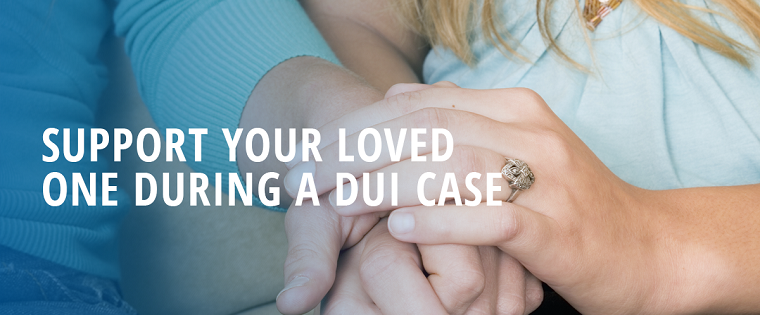As a family member, it’s only natural to protect and advise your loved one during life’s challenges. When he or she goes through something as painful and confusing as a DUI charge, knowing how to offer support and advice can be instrumental. The legal issues that often accompany a DUI defense case may not be matters you can help with, but you can show love and support.
We’ve found that a client’s positive outcomes are very much influenced by how committed their family and friends are to them. To better prepare your loved one for what is to come, understand what you can do:
1. Be supportive.
Be mindful of what your loved one is going through. We observe a lot of worry, concern, fatigue and frustration among our clients and their families. Emotions will be high. Your loved one may wish to talk and they may not. Remind them of your love and offer to listen.
If the emotional chaos is especially difficult, encourage your child to seek professional help. Remember that you’re not unbiased and you are not a psychiatrist. Suggest a licensed professional to help your loved one cope.
It may be difficult for you to emotionally cope as well. Allow your loved one’s needs to come first, and do your best to hold your own feelings back for later, or see another friend or family member to discuss your own emotional state.
2. Be reliable.
As your loved one navigates the many complicated aspects of a DUI charge, even with the help of a DUI defense lawyer, the process can be difficult. Make time for them and prioritize their needs.
Offer to drive him or her to and from appointments, as well as attend those appointments. If they are parents, babysit their children.
I also encourage family members to come to the courthouse with their loved one, and if it makes sense to do so, participate in the defense.
3. Be positive reinforcement.
While I can share helpful resources with clients, family members need to reinforce the recommendations and guidance we provide, whether it’s alcohol-use classes, defensive driving classes, or other important resources.
In particular, if a client is struggling with addiction, overcoming that addiction is the ultimate positive outcome – and that’s easier to accomplish with the love and support of family and friends around them.
4. Remain respectful.
Respect the boundaries of your loved one. Know your limitations and understand when to give them space. Always keep communication open to avoid further conflict and turmoil. Your loved one, as an adult, has the final say in any decisions regarding their defense, even if you disagree.
A DUI defense case can be financially difficult, and if you ever feel the need or desire to offer financial assistance to your loved one, do so cautiously and respectfully. Offer help, but do not push, and remember to honor your loved one’s decisions.
For more guidance regarding a DUI charge, contact John.





